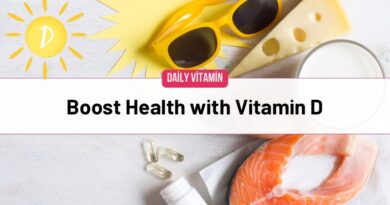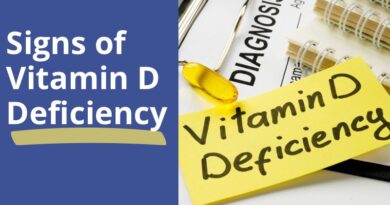
Vitamin D: What It Is, Its Importance, and Everything You Need to Know
Vitamin D is more than just a vitamin; it’s a hormone that plays a crucial role in several bodily functions.
What is Vitamin D?
Vitamin D is a nutrient that our bodies require for several crucial functions. Often known as the “sunshine vitamin,” it’s produced in our skin in response to sunlight exposure. Additionally, it’s found in certain foods and available as a dietary supplement. Vitamin D, unique among vitamins, functions like a hormone, and every cell in our body has a receptor for it.
Types of Vitamin D
There are two main types of vitamin D:
- Vitamin D2 (ergocalciferol): This type is found in some mushrooms.
- Vitamin D3 (cholecalciferol): It’s found in certain animal foods like fatty fish and egg yolks. This is the type that your skin synthesizes when exposed to sunlight and is also present in supplements.
Research suggests that vitamin D3 tends to increase blood levels of vitamin D more effectively than vitamin D2.
Benefits of Vitamin D
Vitamin D plays a crucial role in many of our body’s systems:
- Bone Health: Vitamin D is vital for the absorption of calcium and phosphorus in our bodies. These minerals are necessary for healthy bones and teeth.
- Immune System: Vitamin D strengthens the immune system and helps it fight off bacteria and viruses. A deficiency can lead to an increased risk of infection.
- Mental Health: Studies have linked vitamin D deficiency with mood disorders like depression and anxiety. However, more research is needed to confirm these findings.
Sources of Vitamin D
The most common sources of vitamin D include:
- Sunlight: When your skin is exposed to sunlight, it makes vitamin D from cholesterol. The necessary exposure time varies depending on your location, skin type, and lifestyle.
- Foods: Fatty fish like salmon, mackerel, and sardines are among the richest natural food sources. Other sources include egg yolks, cheese, and beef liver.
- Fortified Foods: In many countries, milk, orange juice, and cereals are fortified with vitamin D.
- Supplements: If you can’t get enough from sunlight or food, vitamin D supplements are an effective way to ensure you’re getting enough.
Signs of Deficiency
Vitamin D deficiency can be hard to recognize because symptoms are often subtle. They might include fatigue, bone and back pain, low mood, impaired wound healing, and hair loss. Severe deficiency can lead to bone disorders such as rickets in children and osteomalacia in adults.
Daily Requirements
The Recommended Dietary Allowance (RDA) for adults is 600 to 800 International Units (IU) per day. However, many experts argue that adults need more than this to maintain optimum vitamin D levels, especially for those with minimal sun exposure. Consultation with a healthcare provider is advised to determine your specific needs.
Understanding vitamin D and how it functions can help you take proactive measures to maintain its optimal levels, thereby ensuring better health.
References:
- Vitamin D: Fact Sheet for Health Professionals. National Institutes of Health.
- Vitamin D. Harvard T.H. Chan School of Public Health.
- Vitamin D: An Evidence-Based Review. Journal of the American Board of Family Medicine.
- Vitamin D and Influenza. Nutrients.
- Vitamin D deficiency and depression in adults: systematic review and meta-analysis. The British Journal of Psychiatry.
- Vitamin D: The “sunshine” vitamin. Journal of Pharmacology & Pharmacotherapeutics.



